Gators Growl to 1999 College Bowl Championship
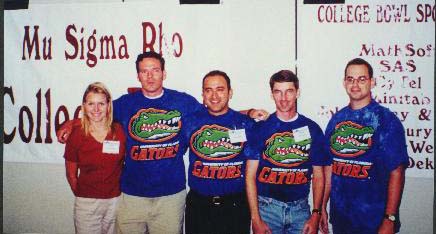
The 1999 College Bowl Champion Florida Gators (left-to-right): Angel Novikov, Brian Caffo, Ziyad Mahfoud, Philip McGoff, and Galin Jones. The team was coached by Dennis Wackerly (not pictured)
University of Florida "Dings" Its Way to Victory
The 1999 College Bowl at the Baltimore Joint Statistical Meetings, sponsored by Mu Sigma Rho and the ASA Section on Statistical Education, was once again successful despite only having four teams competing. Teams representing the graduate programs from Florida, Iowa, Maryland and South Carolina participated in the two-day affair. After Tuesday morning’s semifinal competition, emceed by Walt Piegorsch of the University of South Carolina, teams from Maryland and Florida advanced to Wednesday’s final, emceed by Chuck McCulloch from Cornell University. The loss by the University of Iowa signified at least a lull in the dominance from the Hawkeye State (Iowa or Iowa State have won this competition in four of the last five years). The Maryland team’s advancement to the final round continues a College Bowl tradition of local teams doing well (runners up from previous College Bowls include University of Chicago at the Chicago JSM, UC-Santa Barbara at the Anaheim JSM, and Texas A&M at the Dallas JSM). The Maryland team actually was a conglomeration of students from the campuses at College Park and Baltimore County. Maryland and Florida faced off Wednesday morning, with the Gators from Florida coming away with the victory. Mu Sigma Rho’s newest chapter performed well in capturing their first championship. Congratulations Gators!
The 1999 College Bowl offered some unusual twists and surprises. Due to malfunctioning buzzers, the contestants were forced to strike their water glasses in order to ring in to answer a question. Though it added some subjectivity to the proceedings, many claimed that the Bowl had a nice "down-home feel" and many also preferred the pleasant "ding" of the water glass to the buzzer. No major controversies erupted due to the lack of electronic buzzers. Another twist to the proceedings occurred since only four teams entered into the competition. A special game was scheduled for Wednesday’s action pitting the champion Florida team against an "Old Guy" team of faculty members. The faculty team consisted of past emcees Bob "Boss" Hogg of the University of Iowa, Linda Young of the University of Nebraska, John Boyer of Kansas State University, and past Mu Sigma Rho President Bill Warde of Oklahoma State University. The Faculty got off to a quick start in the game, taking a commanding 95-0 lead over the Gators who appeared a bit hesitant at the beginning. But soon the Gators woke up and staged a furious comeback, tying the game at 110-all. The score was still tied at 150-all with one toss up and bonus question left. John Boyer saved the day for the Old Guys by answering the last toss up question. Special thanks go to the Faculty Team for their willingness to participate.
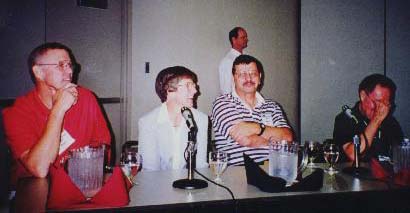
The "Old Guy" surprise challengers: John Boyer (Kansas State), Linda Young (Nebraska), Bill Warde (Oklahoma State) and Bob Hogg (Iowa), who is struggling to find an answer to this very difficult question. In the background is 1999 College Bowl Moderator Chuck McCulloch (Cornell)
Besides the fun of participation and the knowledge and useful information learned, every student participant in every College Bowl has received an award. The 1999 College Bowl again saw excellent corporate sponsorship, with very generous awards offered by MathSoft, SAS, Minitab, StatXact, Marcel Dekker, John Wiley & Sons, Addison-Wesley and Duxbury, with a total dollar value exceeding $10,000! Awards ranged from student versions of popular statistics software, to textbooks, to several full professional versions of statistical software. Award selection was by "playground rules": the members of the winning team (in random order, of course) chose first, from all the award vouchers. Next, the second-place team chose from remaining vouchers, and so on.
The College Bowl was scheduled to return again in 2000 at Indianapolis. Unfortunately, due to an insufficient number of teams signed up in advance to hold a competition, the Bowl was cancelled in 2000. It is hoped that at some time and venue in the near future, the Mu Sigma Rho College Bowl will return.
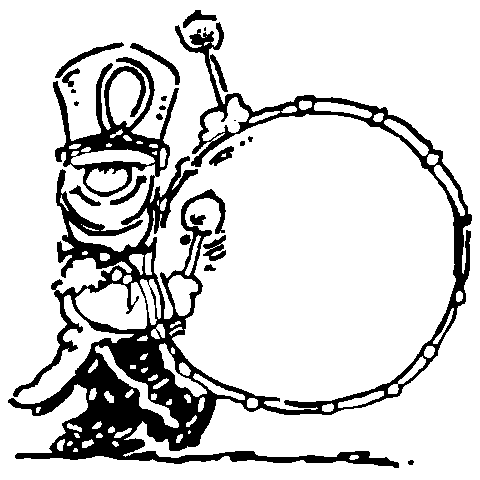
A Brief History of the College Bowl
- 1992: ASA Winter Conference, Louisville KY
Bowling Green def. Virginia Tech
Four teams participating
Organized and moderated by Bob Stephenson (Iowa State)
1994: ASA Winter Conference, Atlanta, GA
Iowa State def. Florida
Eight teams participating
Organized by Ralph St. John (Bowling Green) and Linda Young (Nebraska)
Moderated by J. Stuart Hunter (Princeton)
1995: ASA Winter Conference, Raleigh, NC
Nebraska (team 2) def. Bowling Green
Eight teams participating
Organized by Ralph St. John (Bowling Green) and Linda Young (Nebraska)
Moderated by Mitchell Gail (NCI)
1996: Joint Statistical Meetings, Chicago, IL
Iowa State def. Chicago
Eight teams participating
Organized by Don Edwards (S. Carolina) and Mark Payton (Oklahoma State)
Moderated by Bob Hogg (Iowa)
1997: Joint Statistical Meetings, Anaheim, CA
Iowa def. UC Santa Barbara
Seven teams participating
Organized by Don Edwards (S. Carolina) and Mark Payton (Oklahoma State)
Moderated by Linda Young (Nebraska)
1998: Joint Statistical Meetings, Dallas, TX
Iowa def. Texas A&M
Six teams participating
Organized by Mark Payton (Oklahoma State) and Jim Albert (Bowling Green)
Moderated by John Boyer (Kansas State)
1999: Joint Statistical Meetings, Baltimore, MD
Florida def. Maryland
Four teams participating
Organized by Mark Payton (Oklahoma State)
Moderated by Chuck McCulloch (Cornell) and Walt Piegorsch (South Carolina)
Rules of the Competition

The rules of the competition follow closely those of the original College Bowl. Points are awarded for correctly answering questions posed by the emcee/moderator. The two types of questions are Toss-ups and Bonuses, worth 10 points each. A match consists of a set number of Toss-ups followed by Bonus questions.
On a Toss-up question, the first player to signal has the opportunity to answer the question. She/he must do so without consultation with other team members. No player should volunteer an answer to a Toss-up until recognized by the moderator as the eligible respondent. If a player answers a Toss-up question incorrectly, the question is turned over to the other team. On the turnover, a player on the other team must signal and be recognized before answering. If no player signals within ten seconds of completion of the question (more time is given if calculations are required), the next Toss-up question is asked.
If a player correctly answers a Toss-up question, the team is awarded ten points and is given the opportunity to answer a Bonus question. All members of the team may confer on the answer to the Bonus question, for ten seconds (more if calculations are required) after the question is completed. The team captain will act as spokesperson and his/her answer will be the team's official response.
A player may interrupt the moderator by signalling before a Toss-up question has been completely read. If a correct answer is given, the player's team is awarded ten points and (in the Bonus Round) given a chance at a Bonus question. If an incorrect answer is given to an interrupted question, the team is penalized five points and the entire question repeated for the other team as a Toss-up.
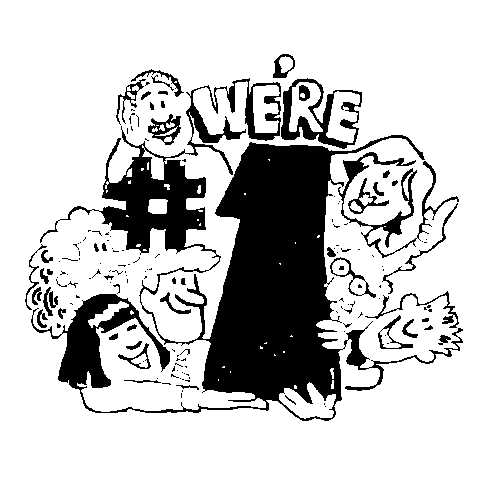
A match will last about twenty minutes. The team with the most points at the end of the game is the winner. If the score is tied at the end of regulation, the tie is broken by a Tie-Breaker Toss-up round. The first correct answer to a Tie-Breaker Toss-up question wins the game. An incorrect answer through interruption (a player signals before the question is completely read) to a Tie-Breaker Toss-up loses the game.
College Bowl Questions
College Bowl Questions will cover all aspects of probability and statistics. There will be questions on the history of statistics, famous statisticians, unlikely statisticians, probability, statistical methods, distributions, and current events such as officers of statistical societies and editors of major journals. Sources for the history of statistics include well known texts such as Stigler (1986), and the journal Statistical Science, which frequently offers interesting historical articles including photos of famous statisticians.
Ideally, questions have short, uncontestable answers. For example, "Define the Method of Maximum Likelihood" is not a useable question. Supporting references are helpful for history trivia questions whose answer may be subject to debate. Anyone may write questions, to be submitted to Mark Payton at the address above.
Sample Questions
 Toss-up question #1: Identify the famous statistician at right.
Toss-up question #1: Identify the famous statistician at right.
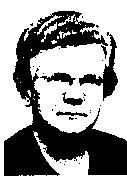
- Geez, I give up, what's the
answer???
 Bonus: For five points each, name (a) the Statistics department she founded, and (b) at least one book on statistical methods she authored or co-authored.
Bonus: For five points each, name (a) the Statistics department she founded, and (b) at least one book on statistical methods she authored or co-authored.
- Geez, I give up, what's the
answer???
 Toss-up question #2: Who is the current executive director of ASA?
Toss-up question #2: Who is the current executive director of ASA?
- Geez, I give up, what's the
answer???
 Bonus. Who was the Executive Director of ASA immediately preceding him?
Bonus. Who was the Executive Director of ASA immediately preceding him?
- Geez, I give up, what's the
answer???
 Toss-up question #3: Events are generated in time according to a Poisson process with intensity lambda. The random variable describing the time to first event has what distribution?
Toss-up question #3: Events are generated in time according to a Poisson process with intensity lambda. The random variable describing the time to first event has what distribution?
- Geez, I give up, what's the
answer???
 Bonus. What is the distribution of the time to the r-th event?
Bonus. What is the distribution of the time to the r-th event?
- Geez, I give up, what's the
answer???
 Toss-up question #4: Who introduced his test for independence for 2-way contingency tables in 1900?
Toss-up question #4: Who introduced his test for independence for 2-way contingency tables in 1900?
- Geez, I give up, what's the
answer???
 Bonus: When he introduced this test he was incorrect in the degrees of freedom he used. Who corrected him?
Bonus: When he introduced this test he was incorrect in the degrees of freedom he used. Who corrected him?
- Geez, I give up, what's the
answer???
Last modified January 24, 2000



